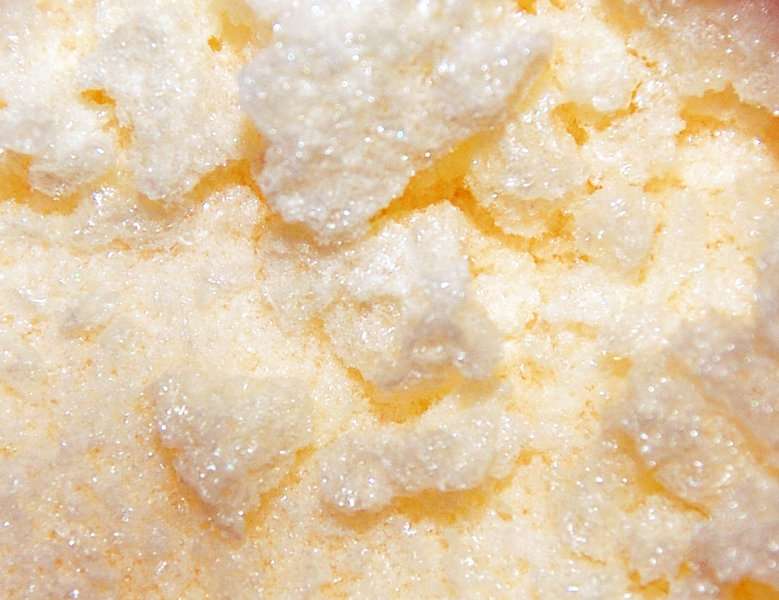Synthetic carbohydrate wards off pneumococcal infections

More effective vaccines against certain forms of pneumonia and meningitis could soon be available. A team of scientists at the Max Planck Institute of Colloids and Interfaces in Potsdam has identified a synthetic carbohydrate that provides extremely effective protection for animal models – at least – against a particularly dangerous strain of pneumoccoci bacteria, which doctors refer to as serotype 1. Many people who are infected with this serotype, particularly in developing countries, develop meningitis. The synthetic vaccine is based on chemically produced carbohydrates. These are more effective and easier to process than the carbohydrates found in conventional vaccines, which are isolated from bacteria. Working in collaboration with Vaxxilon AG, a start-up whose founders include Max Planck scientists, the researchers are now developing the vaccine for marketing.
The availability of effective vaccines against bacterial infections is more important today than ever: bacteria are developing resistance to increasing numbers of antibiotics and, for reasons of availability and logistics, antibiotic treatment is not a viable option in many developing countries. For this reason alone, over 1.6 million people throughout the world die from infections with the bacterium Streptococcus pneumoniae every year. In Germany, pneumococcal disease kills over 5,000 people annually. The risk of developing a serious pneumococcal infection is highly age-dependent. Children under five, adults over 60 and chronically ill patients are particularly at risk. Pneumococcal bacteria can cause serious cases of pneumonia and meningitis and pose a persistent problem in developing countries in particular. Serotype 1 (ST 1), a particularly dangerous strain of pneumococci, is widespread in sub-Saharan Africa and causes many cases of meningitis there. Indeed, the sub-Saharan region is often described as the 'meningitis belt' as major meningitis epidemics have arisen there in recent decades.
Traditional vaccines provide little protection against ST1 pneumococci
Researchers from the Max Planck Institute of Colloids and Interfaces in Potsdam, the Freie Universität Berlin and the Charité-Universitätsmedizin Berlin have now developed a synthetic carbohydrate vaccine against serotype 1 pneumococci. This strain is inadequately covered by the available traditional vaccines. The new vaccine provides extremely effective protection against ST1 pneumoccocal infections in rabbits.
"The synthetic carbohydrate vaccine against pneumococcal infections is very promising and is currently being tested in combination with licensed vaccines," says Peter H. Seeberger, a Director at the Max Planck Institute of Colloids and Interfaces.
To survive in the human body and shield themselves from attacks by the immune system, pneumococci enclose themselves in a capsule consisting of carbohydrate molecules. This is where the vaccines get to work: vaccine developers make the carbohydrate visible to the immune system by attaching it to a carrier protein and this triggers the development of antibodies against the bacterium by the human immune system. However, the 90-plus pneumococcal strains include bacteria whose carbohydrate molecules cannot be attached to carrier proteins without relinquishing their effectiveness as vaccines. "During the processing of isolated carbohydrates it is easy for an important building block like AAT to be altered. As opposed to this, synthetic carbohydrates can be planned down to the last detail and developed accordingly so that nothing goes wrong," says Benjamin Schumann, a former researcher at the Max Planck Institute of Colloids and Interfaces and first author of the study. Synthetic carbohydrates can avoid this problem and are more effective as a result.
A synthetic carbohydrate remains detectable by the immune system
The researchers made use of this fact in the current study. They established that when attaching ST1 carbohydrates to a protein, it is crucial that an unusual amino sugar, which chemists refer to as AAT, remains detectable by the immune system. This building block is altered and deactivated by the traditional vaccine production processes, however is conserved unaltered by the new chemical process. "Our synthetic carbohydrate contains an artificial attachment point that reacts with the carrier protein without interfering with the AAT." In this way, the immune system is focused on the AAT and forms antibodies which recognise the ST1 pneumococci. When tested, the innovative vaccine candidate provided better protection against infections with ST1 bacteria in rabbits than a currently marketed vaccine.
The researchers from Potsdam and Berlin now aim to develop the vaccine to the point at which they can test it on humans in clinical trials. To this end they are collaborating with the start-up Vaxxilon AG, which was established by the Max Planck Society on the initiative of Peter Seeberger and the Swiss company Actelion AG. The company's mission is to develop carbohydrate-based synthetic vaccines for marketing. Peter Seeberger is convinced that this approach will open up new prospects in medicine: "In a matter of just a few years, this new generation of carbohydrate vaccines could be protecting humans against dangerous pathogens."
More information: Benjamin Schumann et al. Development of an Efficacious, Semisynthetic Glycoconjugate Vaccine Candidate against Streptococcus pneumoniae Serotype 1, ACS Central Science (2018). DOI: 10.1021/acscentsci.7b00504
Journal information: ACS Central Science
Provided by Max Planck Society




















